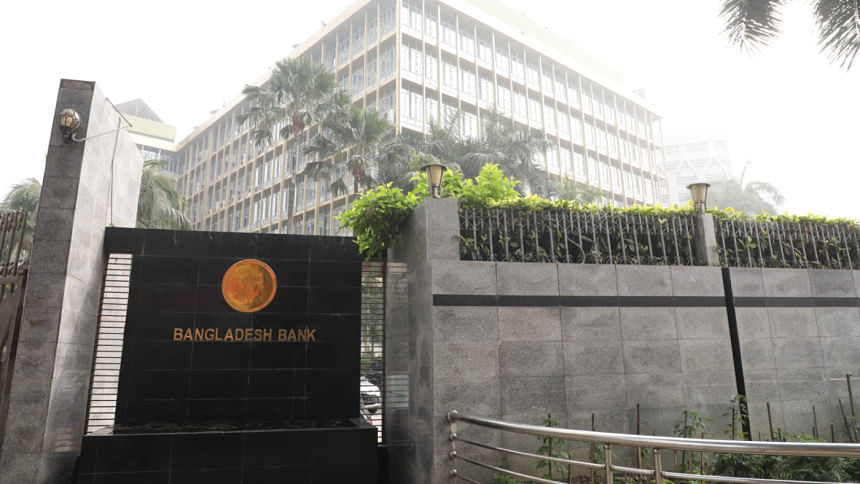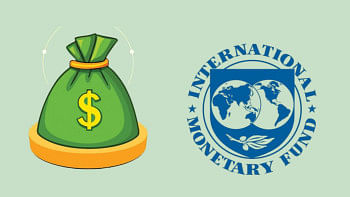Bangladesh overcomes the fear of floating

Bangladesh's long-delayed $1.3 billion IMF loan disbursement is now back on track, after the central bank cleared a major policy hurdle: moving towards a market-based exchange rate. The reform, long resisted due to fears of destabilisation, marks an important turning point in the country's macroeconomic management and sends a strong signal to domestic and international investors.
The International Monetary Fund had paused the fourth and fifth tranches of its $4.7 billion programme over concerns that Bangladesh was lagging behind on two structural benchmarks: reforming its antiquated tax administration and making its foreign exchange regime more flexible. In May, the government delivered on both counts, dissolving the National Board of Revenue and replacing it with two modernised wings under the finance ministry, and formally permitting banks to trade dollars based on market demand and supply.
While the IMF's executive board must still approve the review, the $1.3 billion release is expected in June. More importantly, the market has already responded. Commercial banks — long constrained by central directives and narrow trading bands — welcomed the policy shift, which allows them to operate more freely in the interbank forex market.
This is not just about accessing IMF cash. Bangladesh needed the deal to restore credibility. The reforms unlock not only multilateral funds but also a broader confidence premium. Ratings agencies like Moody's and development partners such as the World Bank and Asian Development Bank are now more likely to work constructively with Bangladesh, easing the external financing squeeze.
"By tethering less to fixed policies and more to macroeconomic realities, the switch aligns with international practices, providing an avenue for greater integration into the global financial system," said Zahid Hussain, a former lead economist at the World Bank's Dhaka office.
Lessons from Sri Lanka
Bangladesh's cautious approach contrasts with Sri Lanka's more abrupt currency liberalisation in 2022. Faced with depleted reserves and a collapsing economy, Colombo allowed its rupee to float freely, leading to a sharp devaluation from 200 to over 360 against the dollar before eventually stabilising near 299.
The painful move was essential to eliminate distortions in the forex market and restore foreign investor interest. Combined with reforms in taxation, debt restructuring, and central bank independence, Sri Lanka's currency move helped pull it back from the brink of bankruptcy.
The central bank here has made it clear that it would still intervene in the currency market "to prevent disorderly conditions." This is a hybrid approach: the exchange rate is no longer rigidly fixed or artificially controlled, but nor is it fully subject to the whims of daily market movements. By retaining the option to intervene, the authorities aim to smooth excessive volatility and shield import-dependent sectors from sudden inflationary pressures.
Still, letting go of the fear of floating comes with risks. Without proper oversight, the shift could create new scope for speculative behaviour, especially in a low-transparency environment. Experts warn that Bangladesh Bank must now strengthen market surveillance and ensure rogue traders do not game the system through artificial dollar scarcity or price collusion.
"Every exchange rate regime must strike a balance between rate flexibility and pressure on foreign exchange reserves. A flexible system reduces the burden on reserves by allowing the exchange rate to adjust naturally in response to supply or demand fluctuations. However, if such fluctuations lead to excessive volatility, the need for intervention using official reserves increases," Hussain said.
To counter this, the central bank plans to deploy a $500 million stabilisation fund to manage sudden foreign currency shortages. If implemented effectively, the strategy could help preserve the integrity of the new regime without reverting to rigid controls.
The test of the new regime will come in moments of stress — whether the central bank can resist the temptation to override market signals, or whether it falls back into administrative fixes.
What's clear is that Bangladesh has taken a meaningful step in the right direction. By embracing exchange rate flexibility and pairing it with overdue institutional reforms, it has sent a message that the country is serious about correction.

 For all latest news, follow The Daily Star's Google News channel.
For all latest news, follow The Daily Star's Google News channel. 










Comments